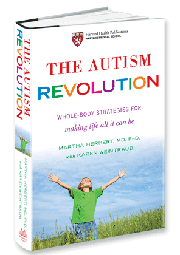There are issues around the idea of “cause.” These include
- Different meanings of “cause”
- Confusion of a “cause” with “contributor”
- Confusion of “cause” with “correlation”
Meanings of “Cause”
The word “cause” is used in different ways, which are often mixed together. But they are not all about the same thing. Here are some different things that “cause” may mean in autism.
- CAUSE AS ORIGIN:
- Is there something at an early point in time out of which autism arises? Like a gene or a parental environmental exposure — or both — that affects the embryo’s development from the start?
- QUESTIONS: Can every feature of autism be attributed to such initial causes? Or do other things contribute to how things unfold and how they work?
- CAUSE AS SOMETHING THAT DEFINES WHO A PERSON IS
- Is there something about the intrinsic nature of a person that makes them “autistic” rather than “neurotypical”? Such as distinctive “brain wiring”? Is autism caused by immutable “brain wiring”?
- QUESTIONS: What is “brain wiring”? How do we know it is immutable? If features of autism can change rapidly, as with fever or short-term intervention, what kinds of brain influences could be at work that could change like this? Are we dealing with a dynamic encephalopathy?
- CAUSE AS CHANGE IN TRAJECTORY
- Did something happen to cause a person who would have been “neurotypical” to “be” or “become” “autistic”? For example, can someone “regress into autism” who might not have been “destined” by genetics or some other intrinsic factor to “be” autistic?
- CAUSE AS ACTIVE MECHANISM
- Is there some feature of the brain that produces or “causes” “autistic behavior” or “autism” on an ongoing, moment-to-moment basis?
“Cause” or “Contributor”
If a gene is associated with autism, how do we know that it “causes” the autism? How can we exclude the possibility that other things may also have contributed?
If you assume that autism is predominantly genetic, you may not feel the need to consider other kinds of contributors, because other genes or non-genetic factors may not seem necessary, or may seem like they are only of minimal influence compared to the genes.
But now there are reasons to think about further contributors:
- recent studies suggesting a substantial contribution from environment
- hundreds of genes now associated with autism, many with only mild effects
- clinical reports and emerging research evidence of change and improvement even in individuals with known genetic abnormalities
“Cause” or “Correlation”?
If something is associated with something else, the two things may be correlated. This does not mean that one of these things causes the other. As the expression goes, “Correlation does not imply causation.” One or both things may be caused by something else, but not by each other.


